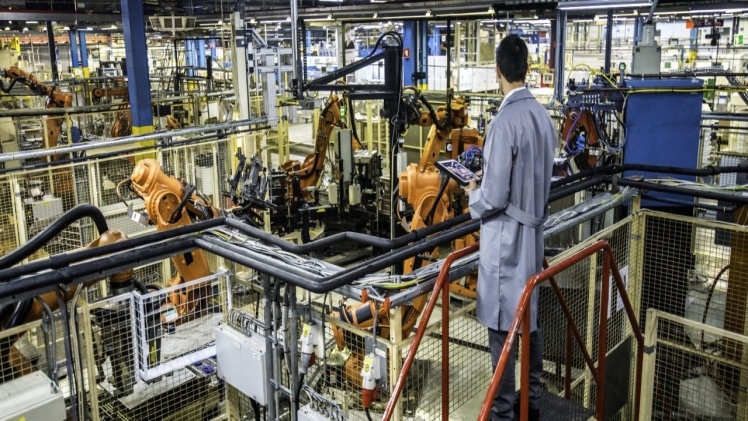The importance of industrial filtration cannot be overstated. Industrial filtration systems play a crucial role in maintaining product quality, ensuring equipment longevity, and safeguarding the health and safety of workers.
From removing contaminants and impurities to optimizing production efficiency, industrial filtration offers a wide range of benefits that contribute to the success and sustainability of manufacturing operations. Here are ten key benefits of industrial filtration for manufacturing processes:
1. Improved Product Quality
Industrial filtration helps to maintain and enhance product quality by removing contaminants, particulates, and impurities from process fluids, gases, and air.
Whether it’s filtering out dust, debris, or microbial contaminants, filtration ensures that the final product meets quality standards and specifications. Clean and purified fluids contribute to the consistency, purity, and performance of manufactured goods, enhancing their marketability and customer satisfaction.
2. Extended Equipment Life
Filtration systems protect manufacturing equipment and machinery from damage and wear caused by contaminants and particulates. By removing harmful substances from process fluids, filtration prevents clogging, corrosion, and abrasion in pumps, valves, pipes, and other components.
This helps to extend the service life of equipment, reduce maintenance costs, and minimize downtime due to repairs or replacements. Investing in industrial filtration is a proactive measure that pays dividends in terms of equipment longevity and reliability.
3. Optimized Process Efficiency
Industrial filtration contributes to the optimization of manufacturing processes by ensuring the consistent and reliable operation of equipment and systems.
By maintaining clean and purified process fluids, filtration helps to prevent fouling, scaling, and other issues that can impair efficiency and productivity. Filtration also facilitates smoother flow rates, faster cycle times, and more precise control over process parameters, resulting in improved throughput and yield.
4. Enhanced Worker Safety and Health
Filtration systems play a critical role in safeguarding the health and safety of workers in manufacturing environments.
By removing harmful contaminants, particulates, and airborne pollutants from the workplace air, filtration helps to reduce the risk of respiratory problems, allergic reactions, and occupational illnesses. Clean and purified air contributes to a healthier and more comfortable working environment, promoting employee well-being and productivity.
5. Compliance with Regulatory Standards
Industrial filtration is essential for ensuring compliance with regulatory standards, environmental regulations, and industry-specific requirements. Many manufacturing processes produce waste streams or emissions that contain pollutants or hazardous substances.
Filtration systems help to remove these contaminants, ensuring that effluents meet regulatory discharge limits and air emissions comply with environmental regulations. By investing in effective filtration solutions, manufacturers can avoid fines, penalties, and reputational damage associated with non-compliance.
6. Reduced Environmental Impact
Filtration plays a key role in minimizing the environmental impact of manufacturing activities by reducing pollution, waste, and resource consumption. By removing contaminants from process fluids, filtration helps to reduce the release of harmful substances into the environment, protecting air, water, and soil quality.
Additionally, filtration enables the recovery and reuse of valuable resources, such as water, chemicals, and raw materials, minimizing waste generation and promoting sustainability.
7. Cost Savings and Efficiency Gains
Industrial filtration offers significant cost savings and efficiency gains for manufacturing operations. By preventing equipment damage, reducing maintenance requirements, and optimizing process efficiency, filtration helps to lower operating costs and improve overall profitability.
Additionally, filtration systems can help to reduce energy consumption, water usage, and waste disposal costs, further enhancing cost-effectiveness and sustainability.
8. Versatility and Adaptability
Industrial filtration systems are highly versatile and adaptable to a wide range of manufacturing applications and processes. Whether it’s removing solids from liquids, separating oil from water, or capturing airborne contaminants, filtration solutions can be customized to meet specific requirements and challenges.
From small-scale operations to large-scale industrial facilities, filtration technologies can be tailored to address the unique needs and constraints of different manufacturing environments.
9. Enhanced Brand Reputation and Customer Confidence
Investing in industrial filtration demonstrates a commitment to quality, safety, and environmental responsibility, enhancing brand reputation and customer confidence. Consumers increasingly value products that are manufactured using sustainable and environmentally friendly practices. By implementing effective filtration solutions, manufacturers can differentiate themselves in the marketplace, build trust with customers, and strengthen brand loyalty.
10. Future-Proofing Manufacturing Operations
As regulations become stricter, environmental concerns grow, and market demands evolve, industrial filtration will play an increasingly important role in future-proofing manufacturing operations.
By proactively investing in filtration technologies and practices, manufacturers can adapt to changing requirements, mitigate risks, and stay ahead of the competition. Filtration is not just a necessity for current operations but also a strategic investment in the long-term success and sustainability of manufacturing businesses.
Harnessing the Power of Industrial Filtration
Industrial filtration offers a multitude of benefits for manufacturing processes, including improved product quality, extended equipment life, optimized process efficiency, enhanced worker safety and health, compliance with regulatory standards, reduced environmental impact, cost savings, versatility, brand reputation, and future-proofing.
By incorporating effective filtration solutions into their operations, manufacturers can achieve operational excellence, minimize risks, and drive sustainable growth and success in today’s competitive marketplace.


